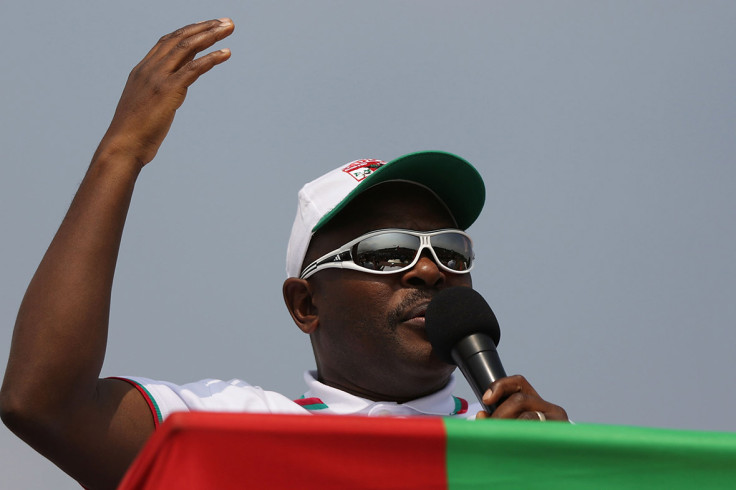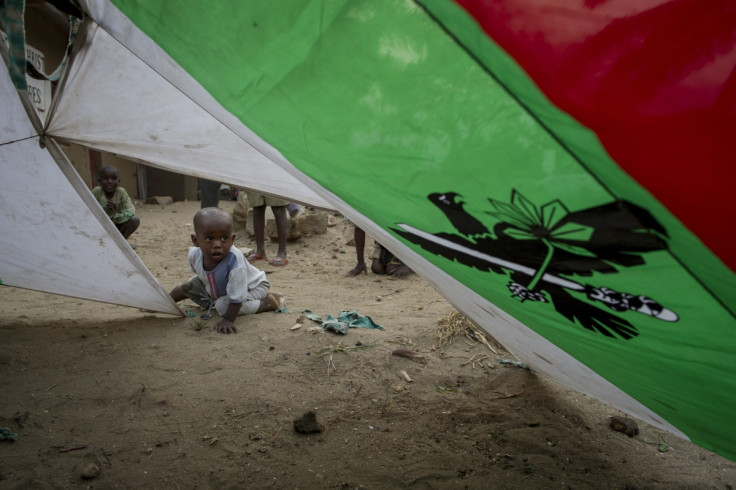Burundian Opposition 'concerned' by appointment of army general Ndayishimiye as head of CNDD-FDD
President Pierre Nkurunziza's CNDD-FDD is being 'militarised' as a solution to conflict is still not found

The appointment of top security official and former Hutu rebel leader major general Evariste Ndayishimiye as the head of the ruling CNDD-FDD party has fuelled fears of 'militarisation' as Burundi's crisis continues, the opposition has claimed.
For the last 16 months, the country has been rocked by a bloody crisis that has seen up to 900 people killed. The politically and ethnically motivated violence pits supporters of President Pierre Nkurunziza against those who say that his re-election in July 2015 for a third term violated the nation's constitution.
During Burundi's civil war of 1993-2006, the CNDD-FDD was the most active rebel group, the CNDD being the political wing of the organisation, while the Forces for the Defence of Democracy (FDD) was its military wing.
While the CNDD-FDD became a major political party in 2005, it was, it's been claimed, "militarised" after the appointment of the Army General as Secretary General of the party on Saturday (20 August 2016) during the party's congress.
Ndayishimiye, who is part of the party's nucleus of military staff, was previously given a top post as the President's chief of staff when Nkurunziza unveiled his new cabinet in August last year following Burundi's controversial elections.
CNDD-FDD: A militarised party in power
The party's structure was recently revised as the CNDD-FDD's presidency was removed and replaced by the Secretary General position. Nkurunziza remains President of the party.
Read more: Who are the feared Imbonerakure youth?
"It now means the party is lead by the military hardliners of the party. This means they not only control the country, but they now control the party.
"This could open the door to a militarisation of the country, of the regime. The risk of a genocidal drift is clear," Jeremie Minani, member of the umbrella National Council for the Restoration of Arusha Agreement and Rule of Law (CNARED), told IBTimes UK.

Highlighting how Ndayishimiye now heads the CNDD-FDD's youth wing, the Imbonerakure - who have been accused of beatings and injuries, banditry and extrajudicial killings, Minani alleged that "all hope of a peaceful political solution to the current crisis is now brought into question".
Hopes of any progress were quashed in May when the government of Bujumbura refused to hold talks with key members of the CNARED, who were opposed Nkurunziza's bid for a third term in office.
"By bringing in an army general as chief of staff and secretary general, the regime is putting in place a structure of war, instead of the negotiations," Minani added.
While the international community has not commented on Ndayishimiye's appointment, IBTimes UK understands that a number of European diplomats have said to be concerned.
Former rebel leader strengthens president
Former military leader in the rebel Hutu CNDD-FDD, Ndayishimiye, whose nom-de-guerre is 'Never', is the right-hand man of Nkurunziza, who is also a former Hutu rebel leader.
While he is believed to be positioning himself ahead of the 2020 elections, the army general is also said to be strengthening the President's position.
"Ndayishimiye, because of his new position, will not be able to oppose Nkurunziza's fourth mandate, because the military hardliners of the party always says yes to the president. They do not want him to leave office," Minani explained.
In a statement published in July, Burundi's Presidency promised the revision of the country's Constitution. However, details of these amendments are yet unknown.
After more than a decade of a devastating civil war, which started with the killing of Hutu President Melchior Ndadaye on 21 October 1993, the Burundi government and the country's last active rebel group FNL on 7 September 2006 signed a comprehensive ceasefire in Dar Es Salaam, Tanzania, which promised an end to the civil war.
© Copyright IBTimes 2025. All rights reserved.





















